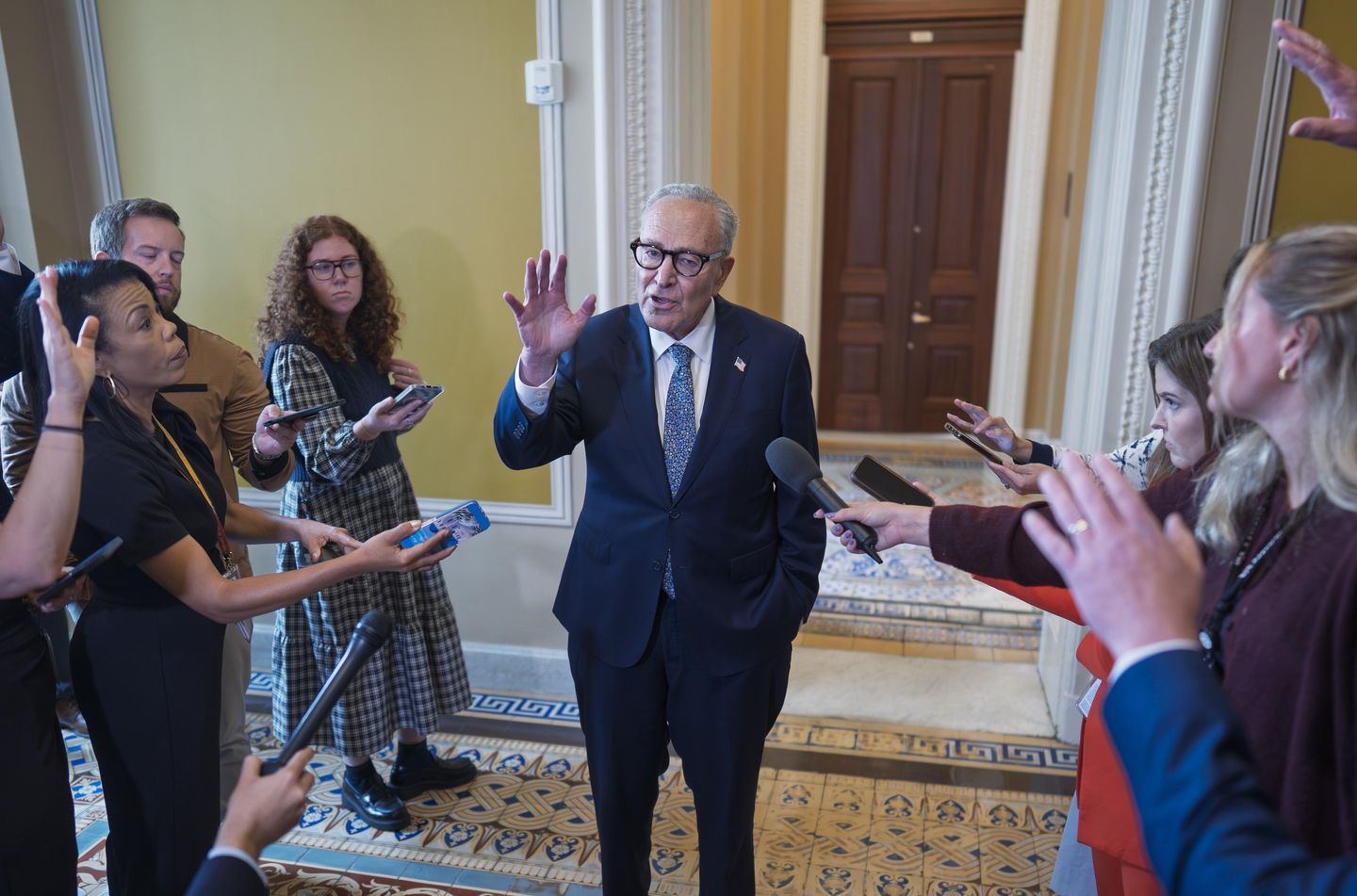
It was Republicans who shut down the government over Obamacare 12 years ago. Now, it’s the Democrats’ turn.
Republicans’ 2013 shutdown lasted 16 days and earned them heaps of criticism and only minor concessions in their bid to erase the Affordable Care Act. This year, Democrats are threatening a shutdown to extend Obamacare’s generous subsidies.
The fight is playing out on a short-term spending bill that Republicans proposed to keep the government open into the fiscal year starting Oct. 1. Democrats say their aim is still the same: saving health care access.
“There is an effort to undermine health care for all Americans,” Sen. Jeanne Shaheen, New Hampshire Democrat, said of Republicans.
“Obviously, they’re not putting health care as a priority for our American families,” said Sen. Mazie K. Hirono, Hawaii Democrat.
Republicans are calling foul. They say Democrats are doing what they have been railing against for years: using the government funding deadline as a hostage to get their way on an unrelated policy demand.
“Do they actually think that hardworking Americans are going to thank them for shutting down the government?” asked Senate Majority Leader John Thune, South Dakota Republican.
“I understand that Democrats’ far-left base is desperate to pick a fight with President Trump, but really, I don’t think Democrats are going to win the next election by shutting down the government over a short-term, clean, nonpartisan funding measure,” Mr. Thune said.
Democrats are largely united against the stopgap spending bill Republicans have proposed to continue current government funding levels and policies through Nov. 21.
Instead of opposing any measure in the bill, they are hung up on what’s not, particularly an extension of enhanced premium tax credits for subsidizing insurance purchased through the Obamacare exchanges.
The enhanced subsidies expire at the end of the year, but Democrats say the issue needs to be addressed this month because premium increase notices will be issued in most states on Oct. 1. Open enrollment for the exchanges begins Nov. 1.
Democrats were planning to release a counterproposal to the Republicans’ short-term spending bill Wednesday that included a permanent extension of the subsidies, a rollback of Medicaid cuts Republicans enacted in the One Big Beautiful Bill Act and provisions to ensure the White House spends the funds Congress appropriates.
“Our bill will represent the right path to avoid a shutdown by addressing health care costs and cuts, by preventing premiums from going up, and by restoring and extending congressional funds for things like [the National Institutes of Health] that Donald Trump and Russell Vought are illegally halting,” said Senate Minority Leader Charles E. Schumer, New York Democrat.
Democrats included the premium tax credits in Obamacare to help lower health care costs for families with annual incomes less than 400% of the poverty level. They expanded the subsidies during the COVID-19 pandemic emergency to cover all families and incur more costs.
Those enhancements, set to expire at the end of the year, made the subsidies available to anyone who cannot obtain insurance through other means, such as an employer-sponsored plan or the government’s low-income Medicaid program.
The tax credit has no set amount. The policy caps premium contributions as a percentage of income, maxing out at 8.5% under the enhancements, and the subsidies cover the difference.
Republicans are split on whether to extend the enhanced subsidies but agree it’s not a fight that should be waged on the government funding bill.
“I think it’s a mistake,” Sen. Thom Tillis, North Carolina Republican, said of Democrats’ willingness to shut down the government over the issue. He said he wants a bipartisan agreement on the subsidies, ideally with some “program integrity” guardrails.
Mr. Thune and House Speaker Mike Johnson, Louisiana Republican, have said they are open to a separate negotiation on the tax credits if it involves modifications to protect against waste, fraud and abuse.
“There are things that we can do to make the program more efficient and ensure that the American people who benefit from it continue to benefit from it,” Mr. Thune said.
Mr. Johnson suggested that Republicans would want an income cap.
“People who make $600,000 a year get a government subsidy for their health care,” he said. “I don’t think that that’s going to be a popular measure when people understand how that works.”
Democrats are betting that their fight will be popular among Americans who are struggling with the high costs of health care and other essentials.
“They’ll understand because they’re going to start seeing the premium increases, both in ACA [marketplaces], but also in private sector health insurance, starting in about a month,” said Sen. Angus King, a Maine independent who caucuses with the Democrats.
Health insurers will raise premiums across the board if the enhancements expire and price people out of the market. The same goes for people who get kicked off Medicaid because of the Republican law adding work requirements and other cost-cutting barriers, Democrats say.
“It’s going to mean that fewer people, healthy people, are going to be in the risk pool, and those costs are going to go up,” Ms. Shaheen said. “That’s the problem we had before we passed the Affordable Care Act.”
The 2013 shutdown was prompted by Sen. Ted Cruz, Texas Republican, over the objection of Republican leaders who feared political consequences. After 16 days, they reaped only a minor concession: an income verification requirement for the subsidies, which are now again in dispute.
In other shutdown fights since, no party has walked away with any significant concessions.
“I’m not really thinking about shutdowns of the past or 2013,” said Sen. Tim Kaine, Virginia Democrat, insisting that he is fighting for what his constituents and the American people want. “We’ve got a better alternative.”














